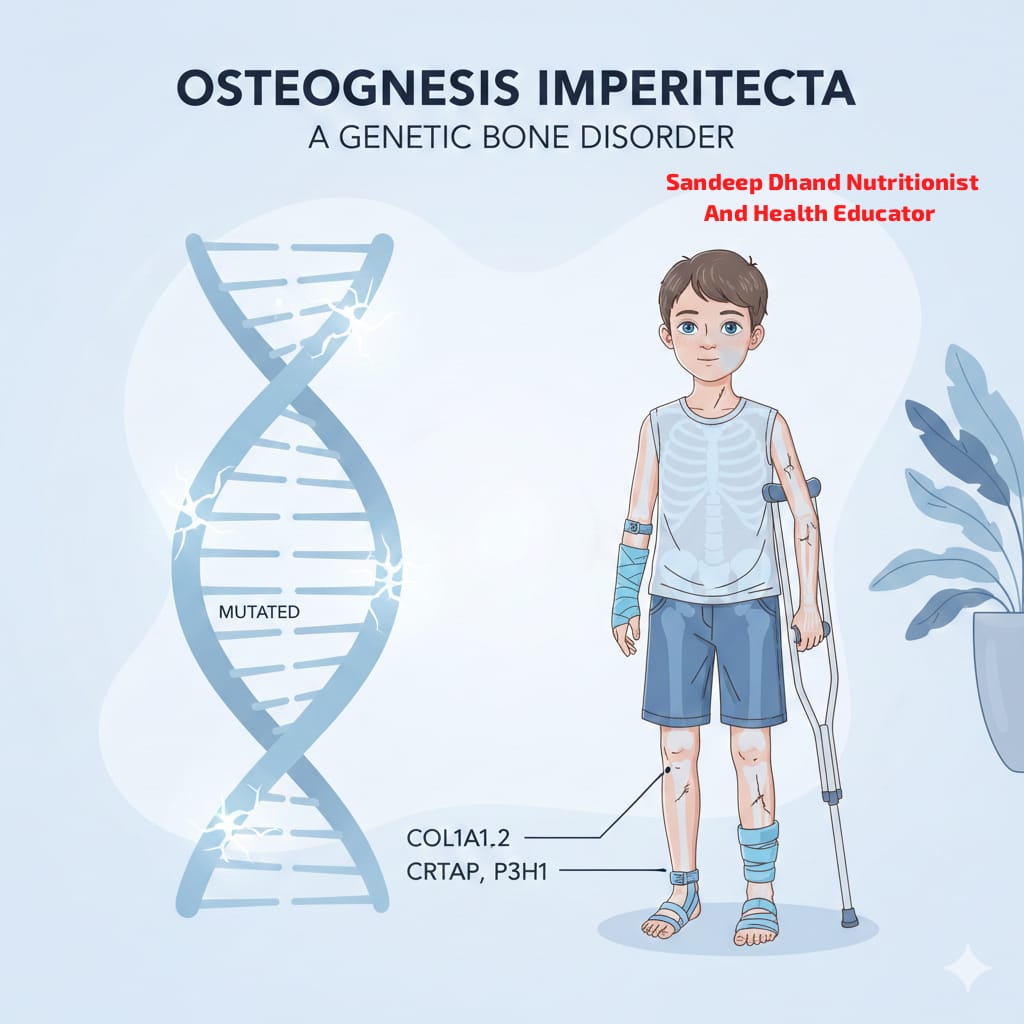Health Desk
Tv10punjab
Introduction
In today’s fast-moving world, many people ignore the importance of eating the right food. We often choose fast food, packaged snacks, or sugary drinks for convenience, but these choices can harm our health. On the other hand, eating healthy and balanced food gives our body the fuel it needs to work properly, keeps diseases away, and helps us stay strong, both physically and mentally.
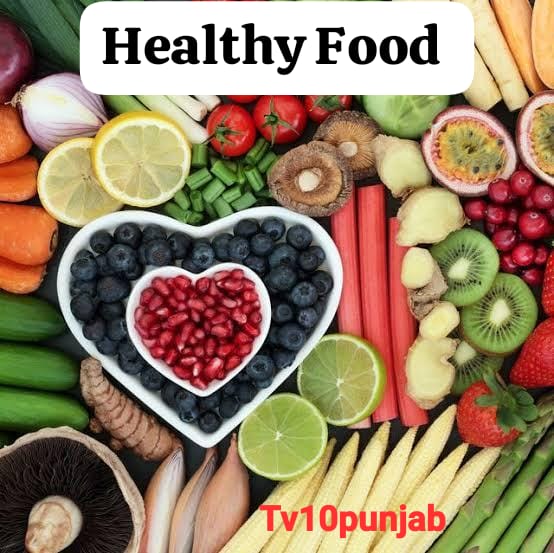
This article explains how and why healthy and balanced food is so beneficial for our health, using simple and easy language that everyone can understand.
What is Healthy and Balanced Food?
Healthy and balanced food means eating a variety of foods in the right amounts. It includes:
Fruits and vegetables – rich in vitamins, minerals, and fiber.
Whole grains – such as brown rice, oats, and whole wheat bread.
Proteins – from sources like pulses, beans, eggs, fish, and lean meat.
Dairy – like milk, curd, and paneer for calcium and protein.
Healthy fats – such as nuts, seeds, and oils like olive or mustard oil.
Water – staying hydrated is a very important part of a balanced diet.
Why is Healthy Food Important?
- Provides Energy
Food is the body’s fuel. Carbohydrates give us energy to work, play, and think. Healthy food provides long-lasting energy, while junk food gives quick energy but causes tiredness soon after. - Improves Growth and Development
Children need the right nutrients to grow properly. Proteins help build muscles, calcium strengthens bones, and vitamins support brain development. - Prevents Diseases
Eating fruits, vegetables, and whole grains lowers the risk of diseases like:
Heart disease
Diabetes
High blood pressure
Obesity
Certain types of cancer
Antioxidants found in colorful fruits and vegetables help fight harmful substances in the body.
- Keeps Digestion Healthy
Fiber from fruits, vegetables, and whole grains helps clean the stomach and prevent constipation. A healthy stomach means better overall health. - Improves Mental Health
What we eat also affects our mood and brain. Omega-3 fats, found in nuts and seeds, support brain function. Eating too much sugar or processed food can cause mood swings, anxiety, and depression. - Boosts Immunity
A balanced diet helps the body fight infections. Vitamin C (found in oranges and amla), zinc (found in seeds), and protein-rich foods strengthen the immune system.
How to Maintain a Balanced Diet?
Following simple rules can help you maintain a balanced diet:
- Eat a Variety of Foods
Don’t eat the same food every day. Mix colors, types, and flavors. The more colorful your plate, the more nutrients you get. - Follow the Plate Rule
Divide your plate:
Half with vegetables and fruits
One-fourth with grains
One-fourth with protein sources
- Avoid Too Much Salt, Sugar, and Fat
Packaged foods often have high salt, sugar, and bad fats. Eat home-cooked food as much as possible. - Drink Enough Water
Water helps in digestion, removes toxins, and keeps the skin fresh. Drink at least 7–8 glasses daily. - Eat on Time
Skipping meals or eating late at night can disturb digestion and increase weight. - Listen to Your Body
Eat only when you’re hungry. Stop eating when you’re full. Avoid eating out of boredom or stress.
Common Mistakes in Diet
Even people who try to eat healthy sometimes make small mistakes like:
Eating too little or too much protein
Skipping breakfast
Drinking sugary drinks thinking they are healthy
Using too much oil while cooking
Eating salads without proper dressing (no good fat or protein)
Relying on supplements instead of real food
These habits can stop you from getting the full benefits of a healthy diet.
Long-Term Benefits of Healthy and Balanced Food
- Better Physical Health
A fit and active body that doesn’t get tired easily and performs daily tasks with energy. - Healthy Weight
You don’t become overweight or underweight. Balanced food keeps the body in the right shape. - Stronger Bones and Muscles
Calcium and protein help maintain bone and muscle strength, especially as you age. - Healthy Heart
Low-fat, high-fiber food keeps the heart functioning well and blood pressure in control. - Healthy Skin and Hair
Vitamins like A, E, and C make your skin glow and hair shiny. - Better Concentration and Memory
A healthy brain means better focus, decision-making, and memory. - Peaceful Sleep
Eating right improves digestion and balances hormones, helping you sleep better.
Tips for Healthy Eating in Daily Life
Start your day with a nutritious breakfast like oats, fruit, and milk.
Carry healthy snacks like fruits, nuts, or roasted chana instead of chips or cookies.
Replace cold drinks with fresh lime water or buttermilk.
Try to eat home-cooked meals more often.
Involve your family in meal planning and cooking to create healthy habits together.
Sample One-Day Balanced Diet Plan (Vegetarian)
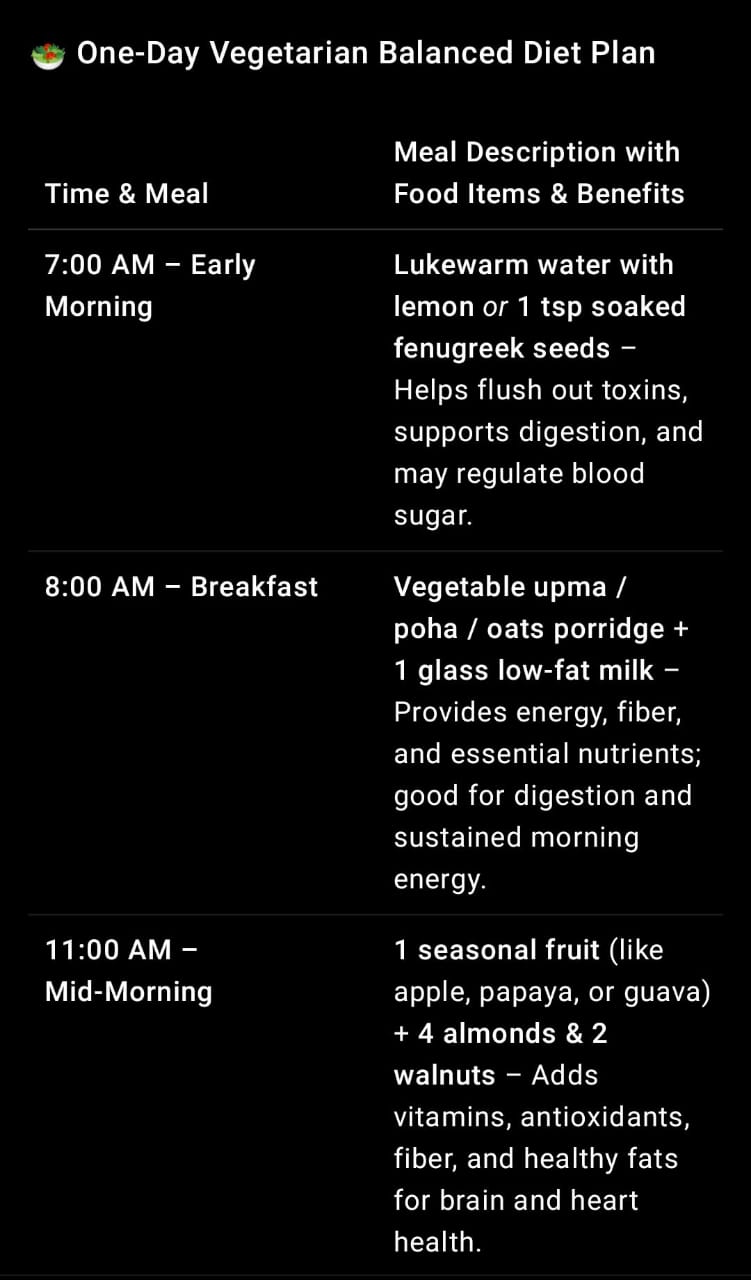
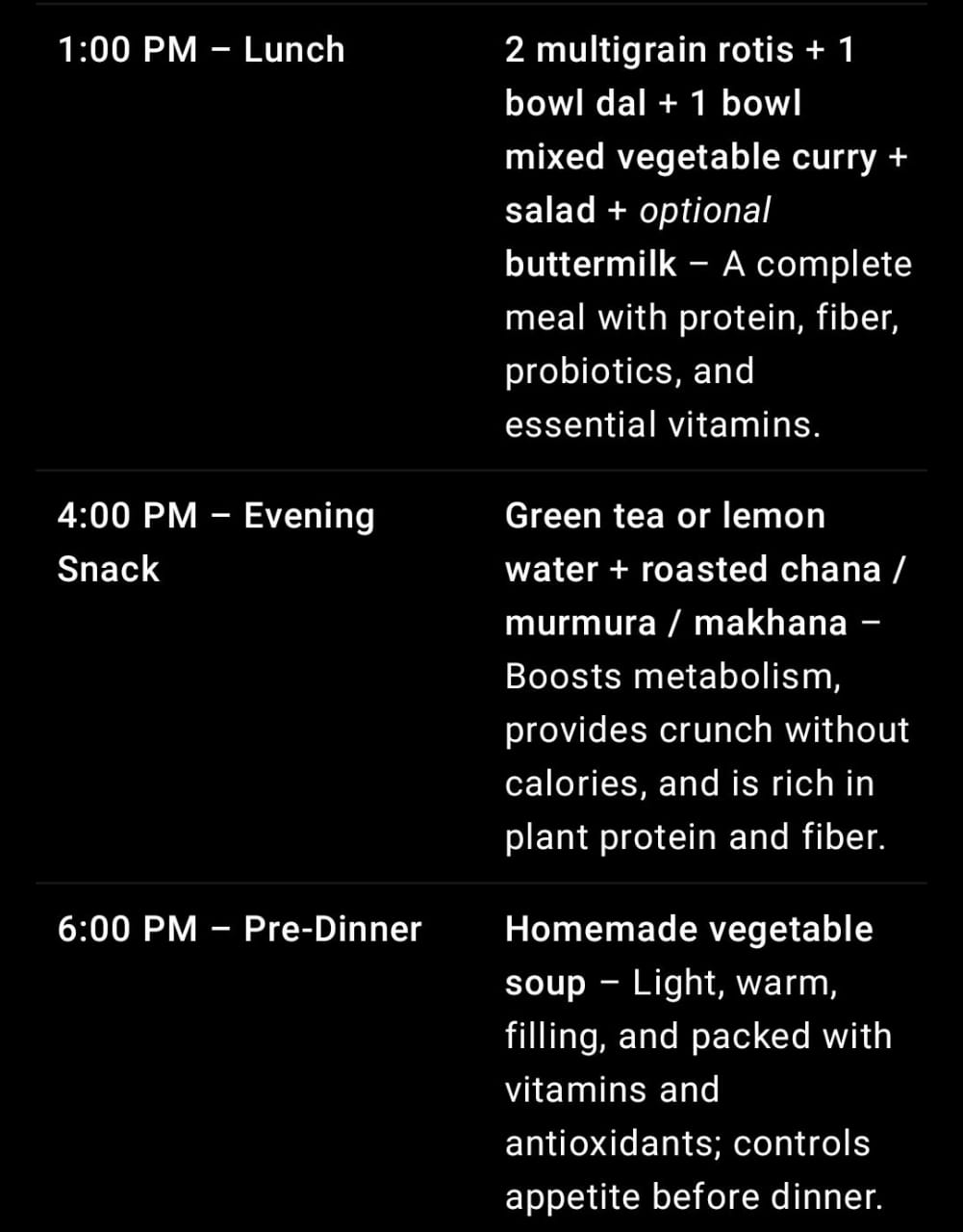
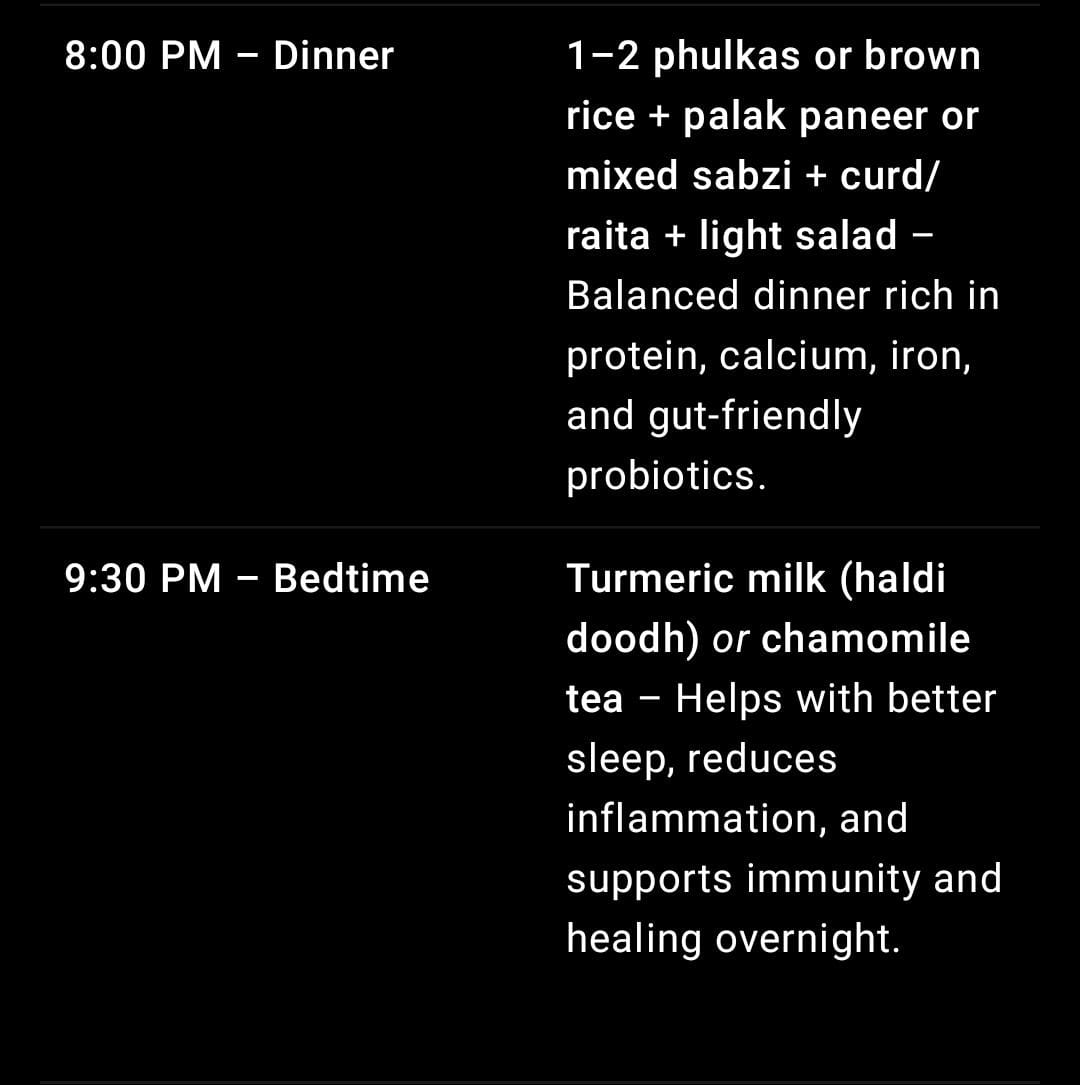
Myths About Healthy Eating
- Healthy food is expensive – Not true. Seasonal vegetables, fruits, and home-cooked meals are affordable.
- You must avoid all fat – Wrong. Good fats like nuts, seeds, and ghee are needed in small amounts.
- Only weight loss diets are healthy – No, a balanced diet supports overall health, not just weight loss.
- Supplements are better than food – Food gives better absorption of nutrients than tablets.
Conclusion
Eating healthy and balanced food is not a punishment or a strict rule. It is a gift that we give to our body every day. By making small, simple changes to our diet, we can enjoy more energy, fewer diseases, and a happier life. It’s never too late to start eating right.
Health is the real wealth, and good food is the first step toward it.


